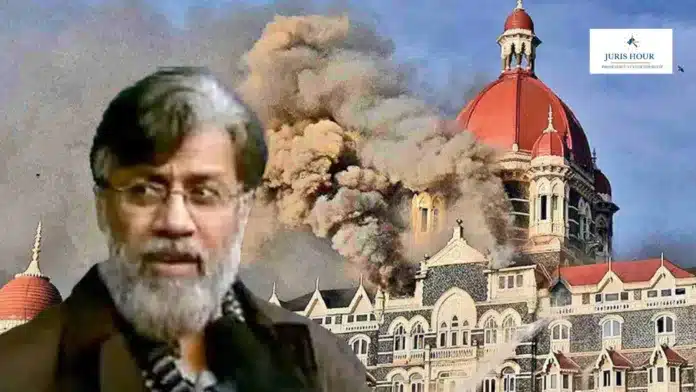In a landmark move toward justice in the 2008 Mumbai attacks, Tahawwur Hussain Rana is being extradited from the United States to India to stand trial for his alleged role in the deadly assault that left 166 people dead. Indian authorities confirmed his transfer is underway, following years of legal proceedings and diplomatic coordination.
Who is Tahawwur Rana and Why is He Wanted in India?
Tahawwur Rana, a Canadian national of Pakistani origin, is accused of aiding in the planning and logistics behind the 26/11 Mumbai attacks. A former military doctor in Pakistan, he later moved to North America and operated a business in Chicago.
Indian investigators believe Rana helped his long-time associate, David Coleman Headley, conduct surveillance of attack sites in Mumbai under the guise of a business trip. Authorities claim Rana allowed Headley to use his immigration company as a cover for scouting operations on behalf of the Pakistan-based terror outfit, Lashkar-e-Taiba.
What Triggered the Extradition Now?
The extradition follows a recent decision by the U.S. courts dismissing Rana’s final appeal against the move. U.S. President Donald Trump had earlier approved the extradition during his February meeting with Indian Prime Minister Narendra Modi, citing a shared commitment to counterterrorism.
After extensive legal review, and diplomatic assurances from India regarding Rana’s treatment and trial, American officials agreed to hand him over to Indian custody.
What Happens After Rana Lands in India?
Rana is expected to be flown to New Delhi under tight security and formally presented before a Delhi court. He is likely to be transferred to Mumbai—where the attacks took place—to face trial under Indian anti-terror laws.
Sources within India’s Ministry of Home Affairs indicate that Rana will be held in a high-security facility, possibly in Tihar Jail or Arthur Road Jail in Mumbai. Special provisions are being made to ensure safety and legal compliance as per the extradition agreement.
Why is His Trial Considered Crucial?
Rana’s trial could be a breakthrough moment in India’s 26/11 investigations. Officials expect his testimony and interrogation to provide deeper insights into the international network behind the attacks—particularly alleged links to Pakistan’s intelligence services and extremist groups.
For victims and their families, Rana’s arrival is a long-awaited development. Survivors say it revives hopes of accountability for the wider conspiracy behind the carnage that unfolded across Mumbai’s landmarks, including the Taj Mahal Hotel, Chhatrapati Shivaji Terminus, and the Jewish outreach center, Chabad House.
What is the Global Significance of This Extradition?
The successful extradition of Rana is being seen as a strong signal of U.S.-India cooperation in fighting global terrorism. It also reinforces India’s diplomatic efforts to ensure that the perpetrators of the 26/11 attacks are brought to justice, even years after the tragedy.
Frequently Asked Questions (FAQs)
➤ What role did Tahawwur Rana play in the 26/11 attacks?
Rana is accused of facilitating the planning stages by helping David Headley conduct reconnaissance of key Mumbai targets under a business pretext.
➤ Why did it take so long for Rana to be extradited?
Legal challenges and human rights assurances delayed the process. Rana contested the extradition in U.S. courts for over a decade.
➤ What charges will he face in India?
Rana will face charges under India’s Unlawful Activities (Prevention) Act and other sections related to conspiracy, terrorism, and aiding a terror group.
➤ How will this impact India-Pakistan relations?
While India has long accused Pakistani groups of orchestrating 26/11, Rana’s trial could re-ignite diplomatic tension, especially if links to state actors are confirmed.

